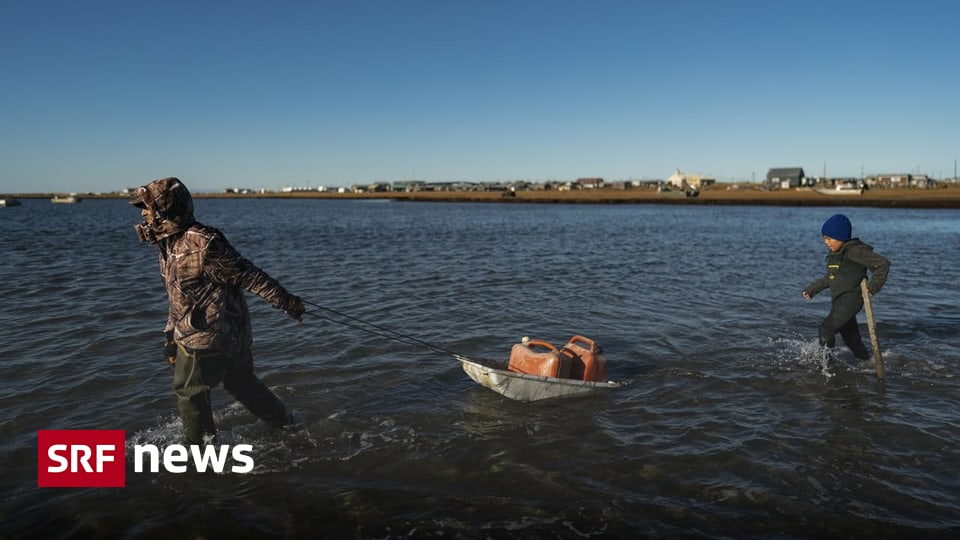Climate change will force hundreds of millions of people around the world to leave their homes in the coming decades. However, under international law, climate change is not a reason to recognize someone as a refugee. This raises questions.
The fact that people are already having to flee due to climate change, and will do so more often in the future, is still largely poorly understood by the public, says Christian Hügel, a professor at the Geographic Institute at the University of Zurich. He says many people are not fully aware of the dimensions, adding: “By 2050, a billion people should be exposed to sea level rise.”
Christian Hügel stresses that scientific research should pay more attention to climate migration – including in Switzerland. Hogel says that although the rockslide in Brienz GR had nothing to do with climate change, they did not feel how great the efforts to evacuate residents were. Imagine having this effort for a billion people.
Climate change is not a reason to flee
Huggel leads a new interdisciplinary research project at the University of Zurich dedicated to climate migration. There will be Johannes Reich, professor of public law and environmental and energy law. In practice, climate change is increasingly becoming a reason for people to flee, he explains. However, it is not recognized in the United Nations Refugee Convention.
“Refugees are people who leave their homeland if they are disadvantaged because of their race, religion, nationality, membership of a particular social group or because of their political opinions, giving rise to a well-founded fear that their life and limbs will be in danger and therefore risk leaving the country,” Reich explains.
legend:
A community in Alaska has already voted twice to relocate due to rising sea levels and the loss of protective sea ice. People refused both times. It’s too expensive for them.
AP Photo/Jay C. Hong
Climate change cannot be considered a direct cause of flight. But indirectly, as Johannes Reich says. When the consequences of climate change lead to discrimination against certain population groups, for example when land becomes scarce and certain ethnic groups are particularly persecuted.
The vast majority of people leaving their homes due to climate change are not currently fleeing across national borders, but rather seeking refuge elsewhere within their home country as so-called internally displaced persons. For this reason, amending the definition of refugee would not do anything for these people, points out law professor Reich.
They will receive much greater assistance if they are supported in adapting to climate change. Therefore, if regions become more resilient to climate change by improving irrigation or expanding flood protection elsewhere.
The question now is whether these adjustment measures will eventually reach their limits from a fiscal perspective.
This actually raises legal questions in many southern countries, for example: Who deserves compensation? Who should pay for it? Johannes Reich is convinced that these questions will increasingly worry us in Switzerland.
“The question will be whether at some point these adaptation measures will reach their limits in financial terms and whether a decision will have to be made as to whether some residential buildings or entire settlements should be evacuated.”
But what seems clear is that the faster we can slow climate change and adapt to the consequences, the fewer people will have to leave their homes because of climate change.

“Typical entrepreneur. Lifelong beer expert. Hipster-friendly internet buff. Analyst. Social media enthusiast.”







More Stories
A boy finds a rare Lego octopus from a container that fell into the sea in 1997
SRF News Contest of the Week – News
Temperature and humidity: Kachelman explains the phenomenon